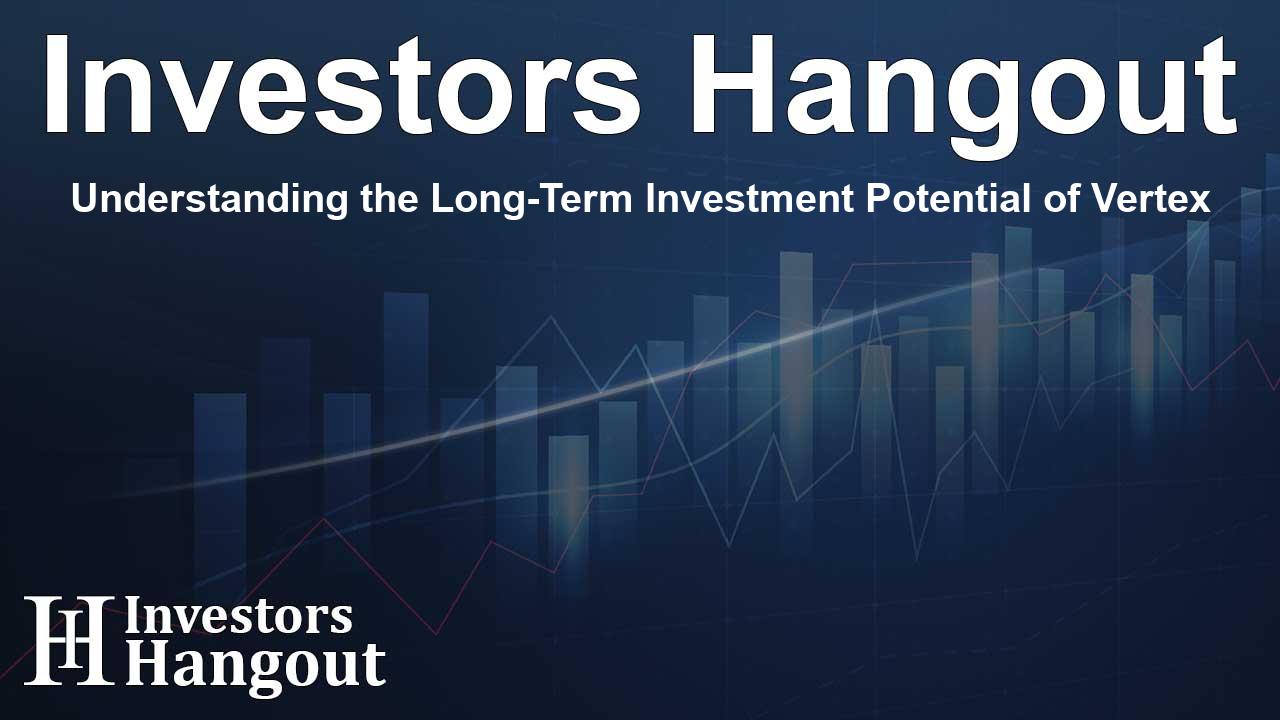Understanding the Long-Term Investment Potential of Vertex

The Last 20 Years of Vertex Pharmaceuticals
Vertex Pharmaceuticals (NASDAQ: VRTX) has consistently outperformed the market over the past two decades, showcasing an impressive annualized return. With an average return of 15.61% per year, it has become evident that investing in this biopharmaceutical company can yield significant financial benefits.
Current Market Position
As of the latest market assessments, Vertex Pharmaceuticals boasts a substantial market capitalization of $103.51 billion. This valuation reflects the company’s strong position in the biotechnology sector, driven by its innovative approaches in treating various diseases.
Investment Growth Over Time
To illustrate the potential benefits of investing in Vertex, consider this scenario: An investment of $100 in VRTX stock two decades ago would now be worth approximately $1,937.28. This striking growth emphasizes the power of compounded annual returns, which can dramatically increase an investor's initial capital.
Understanding Compounded Returns
The key takeaway from this investment journey is the remarkable impact of compounded growth over time. Each year, the returns from the investment not only add value but also accrue interest on previous gains. Over the long term, as demonstrated by Vertex’s performance, this effect can lead to exponential growth of invested capital.
What Contributes to Vertex's Success?
Vertex is recognized for its relentless commitment to innovation, focusing on the development of transformative medicines that address unmet medical needs. Their leading position in cystic fibrosis treatments has garnered significant attention, showcasing their capacity for advancement in the field.
Future Prospects for Investors
Looking ahead, Vertex Pharmaceuticals is positioned to maintain its strong market performance. Continued investments in research and development, as well as strategic collaborations, are likely to enhance their product pipeline, solidifying their standing in the competitive landscape. Investors may find that a stake in Vertex holds potential for long-term growth.
Frequently Asked Questions
What is the average annual return of Vertex Pharmaceuticals?
Vertex Pharmaceuticals has achieved an average annual return of 15.61% over the past 20 years.
How has Vertex's stock performed recently?
Currently, Vertex Pharmaceuticals is valued at approximately $402.91 per share, reflecting ongoing stability in its market performance.
What is the market capitalization of Vertex Pharmaceuticals?
Vertex Pharmaceuticals has a market capitalization of $103.51 billion, highlighting its robust standing in the biotech sector.
How does compounded return affect long-term investments?
Compounded returns significantly increase the value of investments over time, allowing initial capital to grow substantially through reinvested earnings.
What factors contribute to Vertex's market success?
Vertex's success is largely attributed to its focus on innovative treatments, particularly in cystic fibrosis, and effective research and development strategies.
About The Author
Contact Dylan Bailey privately here. Or send an email with ATTN: Dylan Bailey as the subject to contact@investorshangout.com.
About Investors Hangout
Investors Hangout is a leading online stock forum for financial discussion and learning, offering a wide range of free tools and resources. It draws in traders of all levels, who exchange market knowledge, investigate trading tactics, and keep an eye on industry developments in real time. Featuring financial articles, stock message boards, quotes, charts, company profiles, and live news updates. Through cooperative learning and a wealth of informational resources, it helps users from novices creating their first portfolios to experts honing their techniques. Join Investors Hangout today: https://investorshangout.com/
The content of this article is based on factual, publicly available information and does not represent legal, financial, or investment advice. Investors Hangout does not offer financial advice, and the author is not a licensed financial advisor. Consult a qualified advisor before making any financial or investment decisions based on this article. This article should not be considered advice to purchase, sell, or hold any securities or other investments. If any of the material provided here is inaccurate, please contact us for corrections.
